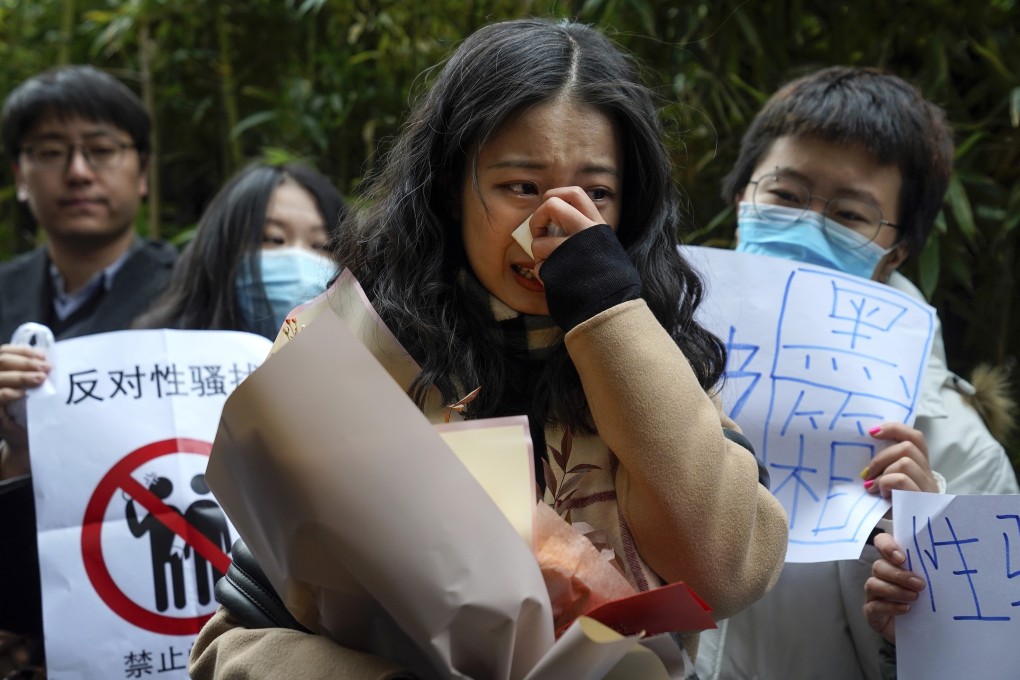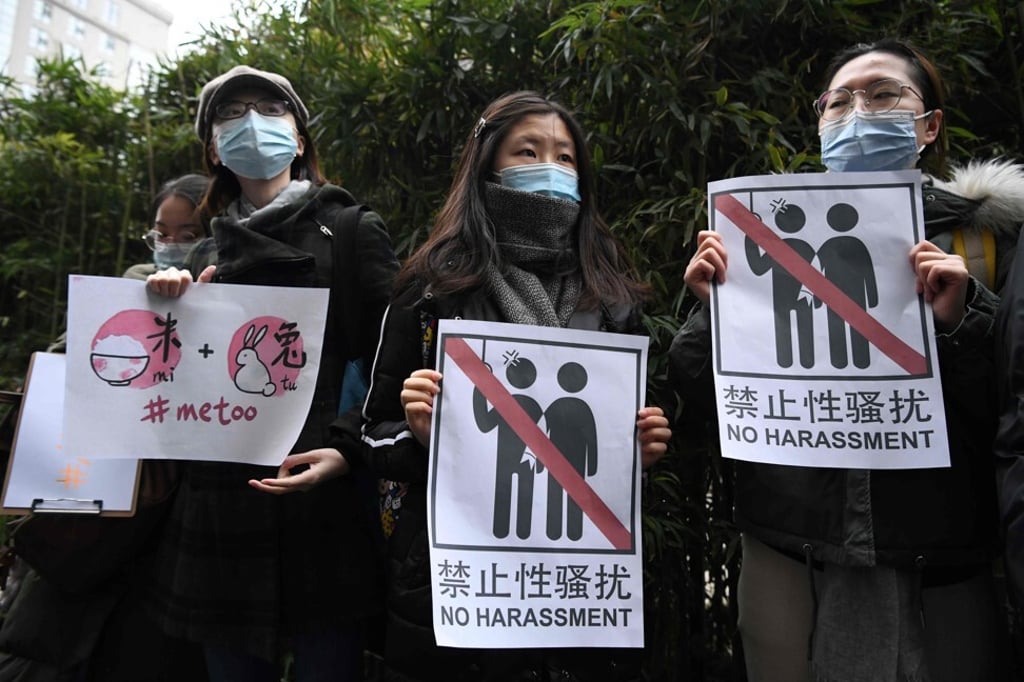Advertisement
China’s biggest #MeToo case between Zhou Xiaoxuan and CCTV host Zhu Jun delayed amid claims of online harassment
- Zhou Xiaoxuan, also known as Xianzi, 28, is suing CCTV anchor Zhu Jun for forcibly kissing her in 2014
- It is rare in China for such cases to reach trial and many women are still reluctant to come forward
Reading Time:2 minutes
Why you can trust SCMP
1

The second hearing in a landmark sexual harassment case between a #MeToo survivor against a prominent TV host was abruptly cancelled on Friday.
The cancellation has illustrated the difficulties faced by sexual harassment victims in China who seek legal justice.
Zhou Xiaoxuan, also known as Xianzi, 28, is suing CCTV anchor Zhu Jun for forcibly kissing her in 2014. She is demanding a public apology from Zhu and 50,000 yuan (US$7,600) in damages.
Advertisement
The first hearing was held on December 2 at the Haidian District Court in Beijing, with no immediate verdict given.

Advertisement
On Friday morning, Zhou and her two lawyers received a notice from the court that the hearing was postponed without any explanation given and no date set for a new hearing.
Advertisement
Select Voice
Select Speed
1.00x